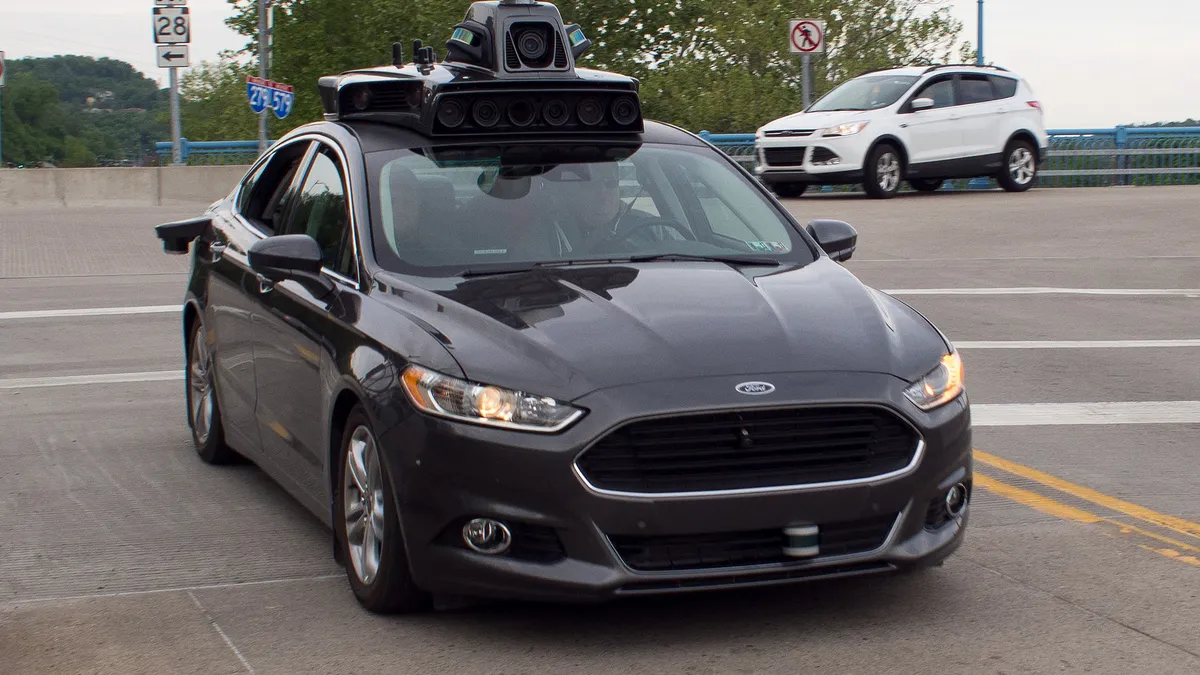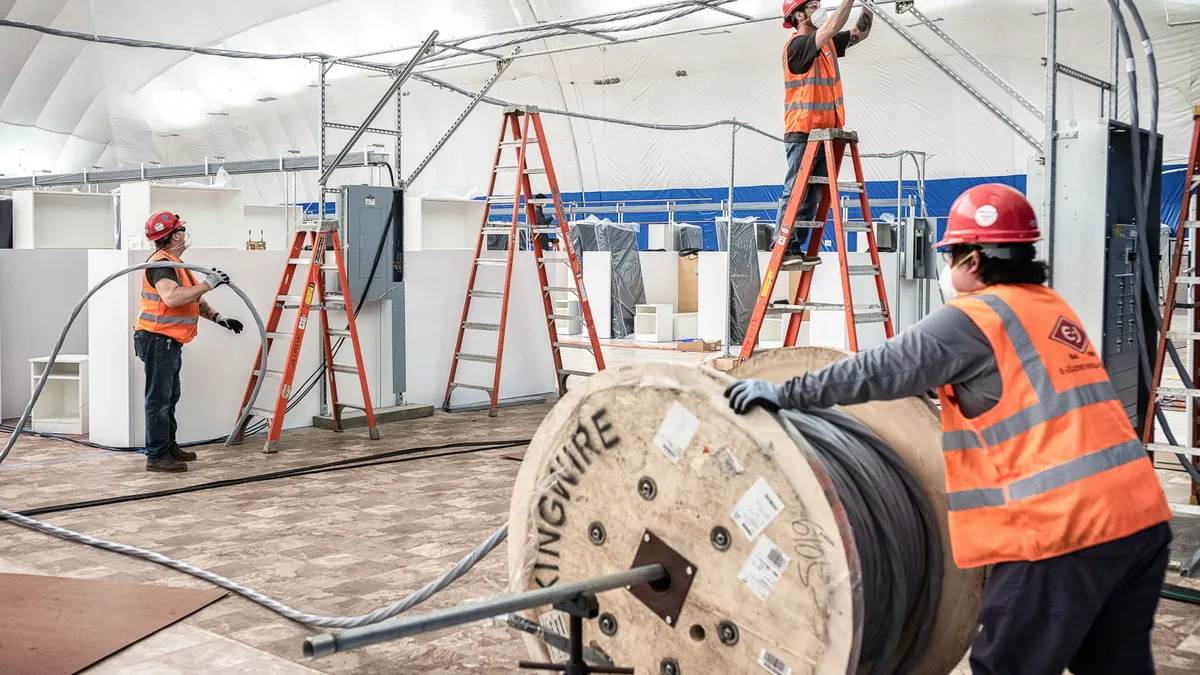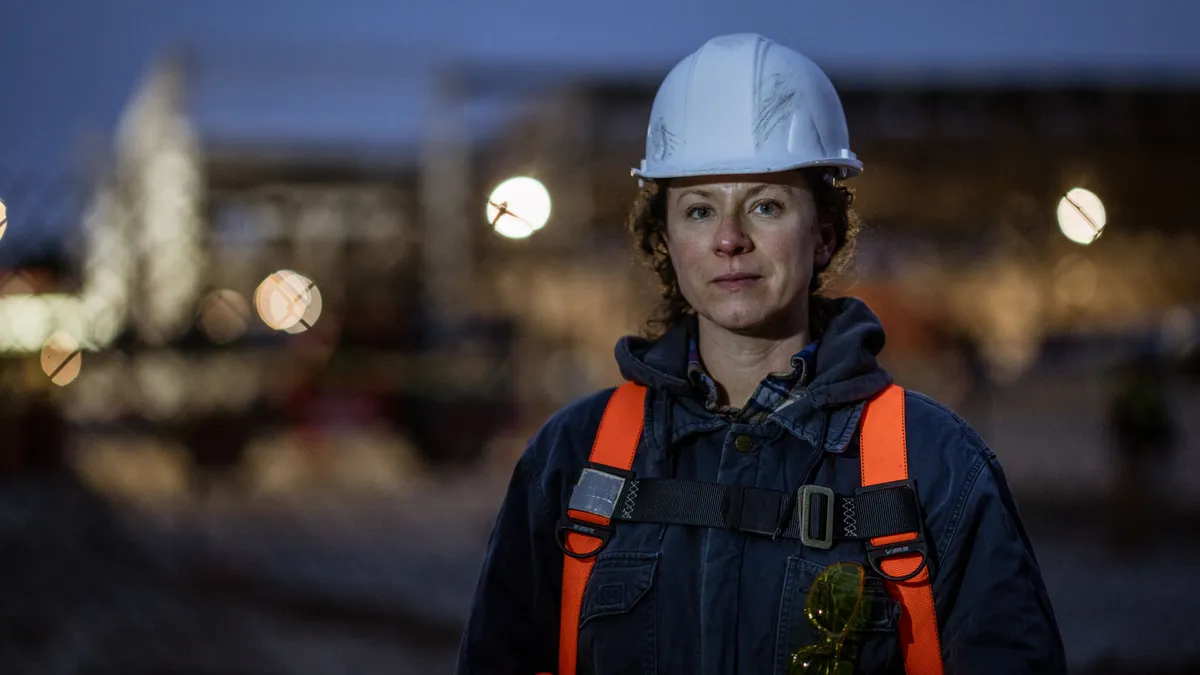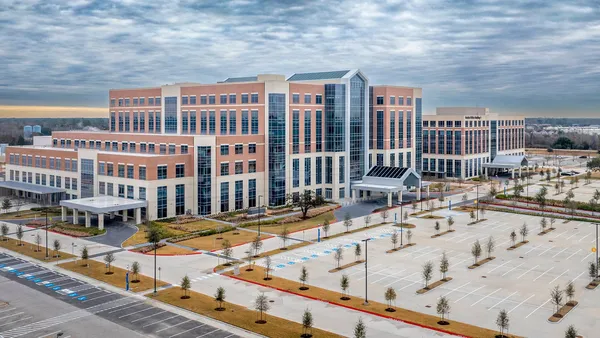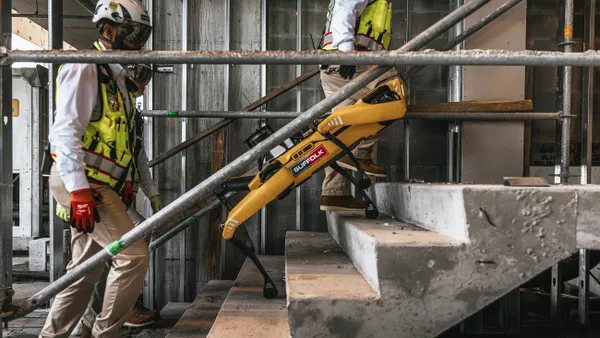Dive Brief:
-
The Senate will consider a bipartisan bill that would allow the development of a U.S. standard for testing and deploying autonomous vehicles, according to Recode. The bill could allow more than 100,000 self-driving cars to hit the roads in the coming years.
-
Introduced last week, it follows similar legislation approved by the House in September. Both bar states from passing laws to regulate self-driving vehicles, though the Senate's version also prevents states from enacting laws that could discriminate against those with disabilities, such as by requiring a licensed driver to be present in the car.
-
Some senators think the bill should also include self-driving trucks. An amendment that would have done so was withdrawn, though it had garnered support from organizations including the American Trucking Association, FedEx, UPS, Uber and Volvo.
Dive Insight:
Connected and autonomous vehicles (CAVs) have been gaining traction in the last year as public- and private-sector groups work within the current technological and regulatory frameworks to bring them to market.
In September, the U.S. Department of Transportation unveiled voluntary guidelines for CAVs, updating and in many ways relaxing similar policies issued by the Obama administration last year. The new version of the guidelines aims to clarify state's role in regulating the technology while giving automakers more of a framework for CAV development.
The legislation working its way through Congress now would take the guidelines a step further by writing CAV testing and deployment into law. Private automakers have already signaled their support of a regulatory framework, noting that national guidelines will simplify the process of testing, developing and scaling CAV.
As automakers await a formal a federal directive, states and other planning organizations have stepped in to provide their own insight on what rules governing CAV use could look like. At least 41 states and the District of Columbia have considered self-driving vehicle legislation since 2012, with 21 of those states passing related legislation, according to the National Conference of State Legislatures.
The nonprofit National League of Cities issued a guide earlier this year to help cities prepare for CAV, advising that they keep an eye on CAV policies, open communication with companies that could integrate the technology as well as with residents who want to embrace it, and increase their computing capacity.
Though still in its infancy, CAV is already reaching beyond its initial focus on consumer vehicles. Implementing such technology on commercial vehicles for functions like platooning trucks to improve fuel consumption, for example, has earned special attention from advocates. However, it has drawn criticism from those in the trucking industry who worry that such advances could replace jobs.


